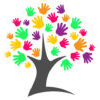
Challenging Children: a New perspective on Children with Oppositional Defiant Disorder
Viewing behavioral challenged differently: Helping Children with Oppositional Defiant Disorder, and other behavioral challenged kids
Disruptive, manipulator, attention-seeking, stubborn, spoiled-brat, resistant, button-pusher, defiant, and bad kid. These are all descriptions that are used for behaviorally challenging children by frustrated adults. Oftentimes challenging children are diagnosed with psychiatric disorders, such as oppositional defiant disorder (ODD), bipolar disorder, reactive attachment disorder (RAD) or conduct disorder (CD). While these diagnoses serve to validate that your child is challenging in a way that is remarkable, they do not always help in getting to the root of the problem.
Oppositional Defiant Disorder or lacking skills – Kids do well, if they can.
Ross Greene, Ph.D, psychologist, and author of The Explosive Child believes that Kids do well, if they can. Even challenging children are doing the best they can in the midst of a explosive episode. The idea that children choose to throw a tantrum, scream and cry for hours is simply untrue. What does a kid get out of crying for two hours, getting a headache, and feeling so sick that they feel like they need to throw-up? The answer is: nothing.
The solution
The idea that kids do well if they can is a wonderful perspective that allows parents of challenging children to see their child’s behavior with compassion and patience. Additionally, challenging children and their parents need to be on the same team. The alternative perspective is an adversarial one, where kids are being willful and naughty to spite their parents. In short, this sets up kids and parents to be opposite ends of the field. The good news is that when we look at a child’s behaviors closely, it’s clear that parents can help their challenging child in a way that no one else can.
Most challenging children don’t misbehave all of the time, only some of the time. Looking at when and why they misbehave is important to understanding how parents can help.
Common reasons why challenging children misbehave:
- Lacking or delayed socio-emotional skills: These children often lag in skills needed in a situation where their peers are more adept. Like being flexible, having frustration tolerance, or having problem solving skills. Simply put, you can think of lagging skills as the answer to WHY do children misbehave?
- Unsolved Problems: These are situations in which there are demands or expectations that overwhelm the skills a child has to respond appropriately. Most importantly, identifying unsolved problems answers the question, WHEN do children misbehave.
By identifying lagging skills, and unsolved problems, parents can work collaboratively to help challenging children solve their problems proactively. Ultimately, helping children with oppositional defiant disorder, and other behavioral disorders begins with viewing their challenging behavior in the context of when and why. Sometimes parent benefit from coaching and support around managing difficult or challenging behaviors in children. Parent-Child Interaction Therapy (PCIT) is an evidenced based treatment for young children (2-7) with behavioral problems.
References:
Greene, R. W. (2014). The explosive child: A new approach for understanding and parenting easily frustrated, “chronically inflexible” children (5th ed.). New York: HarperCollins.
Jeff LaPonsie LMSW
Jeff LaPonsie is a clinical social worker at Kalamazoo Child and Family Counseling, PLLC. He provides counseling to children and families in the Kalamazoo, Portage, and South West Michigan area. He is passionate about helping challenging children and frustrated parents. Jeff has over seven years of experience working with at risk youth. His clinical expertise includes working with children with behavioral, anxiety, attachment and trauma related disorders.


Recent Comments